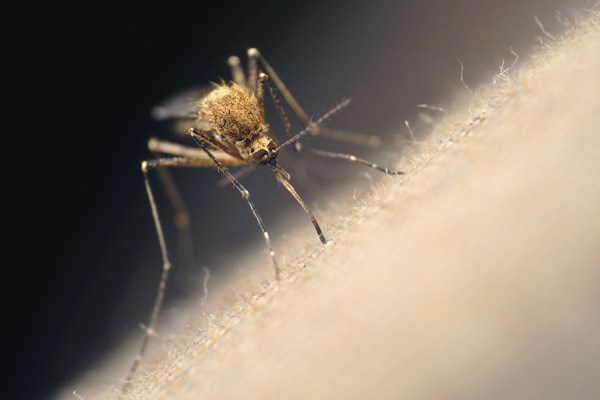For the first time in a number of years, the Town of Battleford will fog for mosquitoes.
A release issued by the town this week states the tentative start date is Tuesday, Aug. 4, weather permitting. Should weather not be suitable, the town will reschedule for the next night and continue until the town has a suitable night.
Fogging is expected to start at approximately 10 p.m. The release says the town sprays at night as this is when mosquitoes are most active and this is also when other friendly insects like bees are most inactive, thus reducing harm to them.
“We have such a short summer, so it’s pleasant to be able to sit out or walk outside without fighting the mosquitoes, said Mayor Ames Leslie in the release. The mosquitoes have gotten so bad, it’s become almost impossible for people to even water their plants or leave their pets outside. This fogging program is in conjunction with the larviciding program which is more preventative, however this year with so much rain and standing water, the adult mosquito situation warrants the fogging program.”
The town uses the safest fogging product available, called Deltagard 20EW, which is a product approved by Health Canada and is also approved by the Environmental Protection Agency in the United States.
Fogging involves a truck-mounted ultra-low volume fogger and it is expected the complete town will be fogged in one evening.
On the night of the fogging, the town will send advance staff notifying residents of the coming fogging truck and to take precautions such as staying indoors during the fogging and for at least one hour afterwards.
Frequently asked questions (FAQ) can be found on the Town of Battleford website and on Page 3 of the July 30, 2020, Battlefords Regional News-Optimist
While the Town of Battleford is planning to fog for adult mosquitoes, the City of North Battleford is sticking with its larvicide program.
The increased rains and higher river water levels have left more standing water in the river valley and surrounding the city, prime breeding areas for mosquitoes, to which the city applies larvicide every Wednesday during the spring and summer.
According to a news release, the city uses the commercial product Vectobac to control mosquito populations. Vectobac uses the biological control agent Bacillus thuringiensis, commonly referred to as Bti, a bacterium found naturally in soils.
During the spore-forming stage of its life cycle, the Bti bacterium produces a protein crystal which is toxic only to mosquito and black fly larvae. These microscopic crystals are ingested by insect larvae when they are feeding. The crystals are dissolved and converted into toxic protein molecules that destroy the walls of the insect’s stomach. The insect usually stops feeding within hours and dies within days.
The city states it believes this form of mosquito control is the most efficient, effective, safe and ecologically responsible method of mosquito control.
The City of North Battleford does not engage in spraying (fogging) as a means to control mosquitoes as it is less effective than a larvicide program. Spraying is also an indiscriminate form of insect control, meaning it destroys pollinators like bees and butterflies as well as mosquito predators like dragonflies, states the city’s news release.
The release also states residents can help control the mosquito population by removing breeding sites, such as standing water, from their yards. Other things to look for as sources of mosquitoes are plugged eaves troughs, exposed rain barrels and bird baths.
Keeping grass cut short also helps, says the release.
The city goes on to recommend individuals reducing their attractiveness to mosquitoes by wearing light-coloured, long-sleeved shirts and pants, using mosquito nets over infant playpens and strollers and applying insect repellent with DEET (do not use DEET on children under six months old). The release also recommends reducing outdoor time between dusk and dawn, and ensuring all windows and doors are tight-fitting and properly screened.



